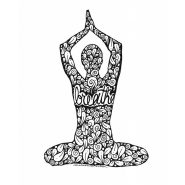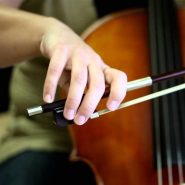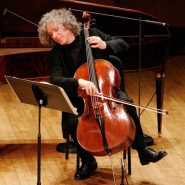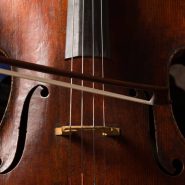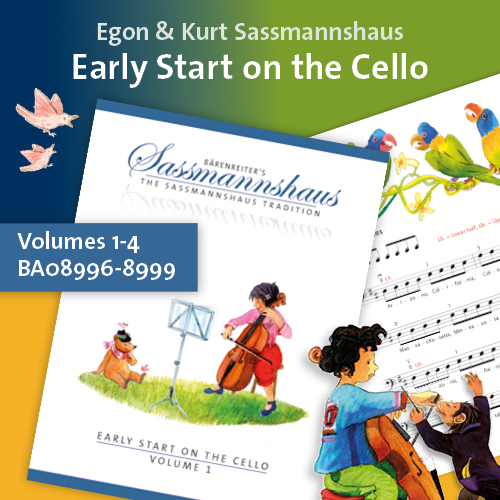Tag: cellobello
By Gregory Beaver May 27, 2013
Subjects Playing Healthy, Practicing
Tags advanced breath control, aerobic exercise, Awareness, balance, Beaver, body, breath control, breathing, breathing with scales, CD player, cellists, cello, cellobello, chest, control, controlled frenzy, Coordination, diaphragm, emit sound, Gregory, heart rate, Improve your talent, improvement, light-headed, muscles, musicians, oxygen, practicing, relaxation, simple formula, skill, smoothness, stomach, strengthen the diaphragm, T’ai Chi, talent, Technique, trouble passages, unbalancing the body, weakness, yoga

By Blogmaster April 28, 2013
Tags a tough but dedicated teacher, An Organized Method of String Playing, anticipation in music, artists, Bloomington, born to teach, cello, Cello teacher, cellobello, child prodigy, civilized human existence, Dallas Symphony, dramatic success, from performance to teaching, Grammy Award-winning recording artist, great cello teachers, Indiana University, Indiana University Mourns Loss of Music Great, Jacobs School of Music, Janos, Metropolitan Opera Orchestra, music's role in society, musician, performing artist, playing in public, Remembering Janos Starker, Starker, teacher, technical mastery, the Chicago Symphony, tremendous talent, true artistic giant
By Selma Gokcen April 18, 2013
Subjects Playing Healthy
Tags abdominal muscles, affect, Alexander principle, Alexander Technique, attention, automatic process, breathing, breathing apparatus, breathing free, cello, cello pressing on chest, cellobello, chest cavity, conditions, correct position, divine influence, downward force of gravity, drink, efficient breathing, energy, enlivening, enter and depart life, exalting emotion, exercise, exhale, existing tension, expiration, food, freedom, freedom of the thorax and ribs, gases, Gokcen, gravity, guide, health, inspire, lungs, muscles, muscles relax, re-education, reducing air pressure, Selma, sequence, shift weight, straining for breath, touch, use affects function
By Elana Katz March 26, 2013
Subjects Playing Healthy
Tags artistic clarity, balance, cellobello, clarity, comfortable position, concentrated creative expression, Cultivating softness, Elana Katz, elongation, energize, energy levels, exhale, heightened awareness, inhale, integrated into daily life, lungs, meditation, movement, muscular strength, nervous system, release, softness, strength, stretching, yoga
By Blogmaster March 20, 2013
Subjects Travel
Tags air travel, arguments, Benoît Machuel, campaign, cello, cellobello, draft amended regulation, EU Commission, EU Parliament, European employers, European managers, extra airline seats, fair treatment for musicians, General Secretary, International Federation of Musicians (FIM), Janne Schaffer, Katie Melua, liver performance sector, MEP, miles, Mr. George Bach, musical instruments carried on planes, petition, proposal, specific provisions for instruments on planes, success, support, Travel, victory
By Melissa Kraut March 14, 2013
Subjects Artistic Vision, Practicing
Tags achieve a common goal, athlete, bleachers, cello, cellobello, chamber music, Cleveland Institute of Music, competitions, discipline, early morning practice, eat well, exercise, frustration, getting enough sleep, high school orchestra assembly, increments, Interlochen Arts Academy, letter jacket, Melissa Kraut, orchestra, passion, pool, professor, progress, refine a skill, Reflections fro the bleachers, repetition, sick, sleep well, stretch, successful musicians, swimming, swimming mom, tempo, timing, training, unhealthy, Wenger chairs
By Jeffrey Zeigler March 12, 2013
Subjects Artists
Tags airports, Alix Spiegel, Amanda Palmer, Anna Clyne, Arizona State University, campaign, cello, cellobello, Chicago Symphony Orchestra, Composer-In-Residence, donations, emeritus psychologist, entrepreneurs, funding a project, fundraising, fundraising in the 21st century, goals as artists, Hare, incentives, KickStarter, Krishna, millions of dollars, NPR, online funding program, Paola Prestini, perks, personal connection, process, raising money, receive funding, Rule of Reciprocation, solo album, supporters, TED talks, vision into art, work of Robert Cialdini
By Selma Gokcen March 11, 2013
Subjects Playing Healthy
Tags aiming for a goal, Alexander Technique, automatic, balancing the instrument, bow, breath flowing, cello, cello technique, cellobello, conceptions, evaluate, Experience, exploring our habits, framework for self-study, freedom, fundamental knowledge, Gokcen, inner composer, lasting value of Alexander Technique, left hand, movement, muscular tension, music, musical expression, nervous system, phrasing, physical pleasure of playing, place of silence, Preconceived ideas, pressure in the sound, psycho-physical, re-training of musicians, reactions, refining sensation and awareness, self-study, Selma, Six Part Series, subconscious patterns of learning, tension, thinking, Thinking in a new way, working with music
By Selma Gokcen February 25, 2013
Subjects Playing Healthy
Tags Alexander Technique, arms, beauty, bend and extend, body at ease, bow strokes, Casals, cello, cello playing muscles, cellobello, challenges, collapse, contraction, dynamics, energy, fingers, flexible, function, Gokcen, Habits, importance of quietness, increased resistance, inner pitch, misguided effort and unease, nasal sound, neck, partnership, perspective, powerful accents, powerful arms, pressured sound, principle of opposition, process, pull and push, repeated sensory stimulation, Selma, sensitive gesture, sensory awareness, simple gesture, Six Part Series, teaching table, thinking in new ways, unwanted sound, volume, wrist
By Selma Gokcen February 18, 2013
Subjects Playing Healthy
Tags Alexander Technique, associations, balance, bowing, calm breathing, cello, cellobello, contraction, engage in conversation, exploration, Gokcen, Habits, head-neck-back relationship, ischial tuberosities, natural, natural movement, negative associations, one-sided instrument, opposition, pelvic rocker bones, positive associations, posture, power, practicing, quiet practice, receive the cello, relationships, rotation of the spine, Selma, shifting weight, simple activities, sitting, Six Part Series, Spine, tension, tension in shoulders and back, thinking in new ways, torso, understanding, value
By Paul Katz February 17, 2013
Subjects Travel
Tags air travel, aircraft, airport customs, Amtrack Regulation, Amtrak, baggage, buying a second seat, cabins, cabins of aircraft, cello, cellobello, customer service, documents, extra charges, FAA, having the proper documents, international customs, Katz, Medium-Sized Musical Instrument, musical tours, passport, Paul, purchasing extra seats, regulations, rules, service, special items, tickets, touring careers, train travel, Travel, travel officials, travel with instruments
By Paul Katz February 12, 2013
Subjects Travel
Tags air security staff, air travel, Alban Gerhardt, bow snapped over bridge, broken cello bow, brutal, careless, cellist, cello, cello bow, cello bridge, cellobello, damaged bow, damaged instrument, forced the case shut, handling instruments, Heinrich Knopf, Katz, O’Hare International Airport, outrage, Paul, plane, rare cello bow, security, security check, security officers, snapped cello bow, Transportation Security Administration workers, Travel, TSA, US Airways, varnish
By Selma Gokcen February 11, 2013
Subjects Playing Healthy
Tags ability, Alexander Technique, attention to detail, bow arm, cellists, cello, cellobello, creating balance, cultivate awareness, energy flowing through the body, Gokcen, Habits, instrumentalists, Listening, music, musicians, opposition, Part II, powerful force of energy, proper weight transfer, quietness, relationship of the head back and spine, Selma, sharpening the senses, Six Part Series, tension in the neck, the back, Thinking in a new way, top level performing, trying, well-coordinated body, willing
By Mark Summer February 6, 2013
Subjects Artistic Vision
Tags action, adventures, aspirations, Berklee School of Music, cello, cellobello, contemplate, decisive action, Development, dreams, educator, embarrassment, gauge progress, gifts, goals, hero, improvising, jazz, Mark, meditation, mentors, mindfulness meditation, musical hero, musical journey, musicians, New Year, New Year's Goals, possibility, practicing, recording, recording artists, respect, sessions, specific dreams, string quartets, Summer, taking advantage of opportunities, The Secret, travel with instruments, trips, Turtle Island String Quartet, Utah, Zion National Park
By Selma Gokcen February 3, 2013
Subjects Playing Healthy
Tags Alexander Technique, animate, arms, attention, automatic movement, back, behave, brain, cello, cellobello, collapse, doing, exploration, feet, fingers, force, Gokcen, Habits, hands, laying on the floor, learning, legs, manifest, mental messages, music, music-making, nature, neck, Observation, overcome deeply ingrained habits, Pablo Casals, Patrick Macdonald, perceive, powerful expressiveness, pressure, primary information, process, pushing, re-education, react, rediscovering, Selma, shortcuts, shoulders, strain, stretching, the value of quietness, thinking
